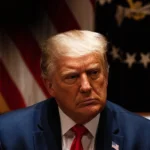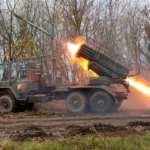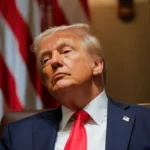South Korean President Yoon Suk Yeol has defended his controversial martial law declaration, framing it as an act of governance and denying allegations of rebellion. In a televised address Thursday, Yoon vowed to “fight to the end” against impeachment efforts and intensifying investigations into the decree.
Yoon’s statement came as the Democratic Party, South Korea’s main liberal opposition, prepared to introduce a new impeachment motion. The motion, expected to face a floor vote this weekend, follows Yoon’s December 3 martial law declaration, the first in over 40 years.
Political Fallout from Martial Law Declaration
The decree sparked political turmoil and mass protests, calling for Yoon’s ouster. It involved deploying nearly 300 armed troops to encircle the National Assembly and raid the election commission. However, martial law was short-lived, lasting only six hours before the National Assembly unanimously overturned it.
Yoon, a conservative, defended his actions, calling the Democratic Party “anti-state forces” attempting to undermine government operations. He claimed the troop deployment aimed to “maintain order”, not paralyze the legislature.
“The opposition is now doing a sword dance of chaos, claiming that the declaration of martial law constitutes an act of rebellion. But was it really?” Yoon asked.
Criticism and Legal Challenges
The Democratic Party dismissed Yoon’s remarks as “a declaration of war against the people.” Opposition leaders accused Yoon of inciting far-right riots and claimed the decree violated South Korea’s constitution, which permits martial law only in wartime or extreme emergencies.
Yoon’s former defense minister, Kim Yong Hyun, was arrested this week on charges of rebellion and abuse of power. Kim allegedly recommended the martial law decree and orchestrated troop deployments to block parliamentary votes. He is among several high-ranking officials under investigation.
The Justice Ministry has banned Yoon from leaving the country. While a conviction for rebellion carries the death penalty, many doubt authorities will detain Yoon due to his presidential security service.
Political Implications and Divided Ruling Party
The impeachment motion, if successful, would suspend Yoon’s presidential powers while the Constitutional Court decides whether to remove him from office. Opposition parties currently hold 192 seats, eight votes shy of the required two-thirds majority in the National Assembly.
Yoon’s actions have also deepened divisions within his People Power Party (PPP). Party chair Han Dong-hun criticized the martial law decree as “a confession of rebellion,” prompting backlash from Yoon loyalists. Han has urged party members to support impeachment.
Allegations of Election Interference
Yoon’s justification for deploying troops extended beyond parliament. He claimed the National Election Commission resisted inspections after a North Korea-linked cyberattack. Critics allege Yoon sought to seize servers to investigate unfounded claims of rigged elections.




